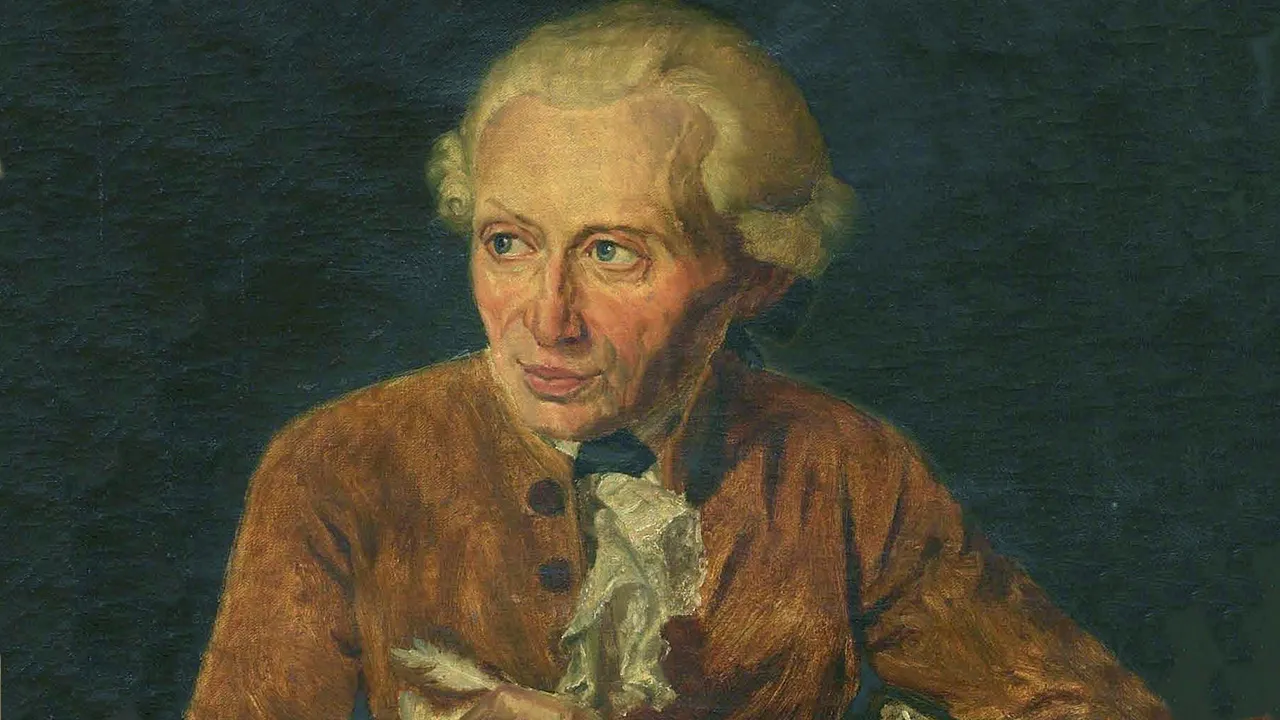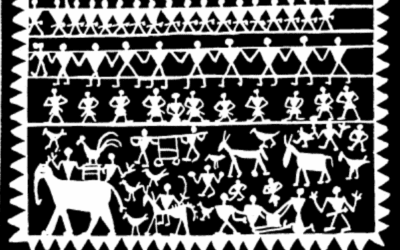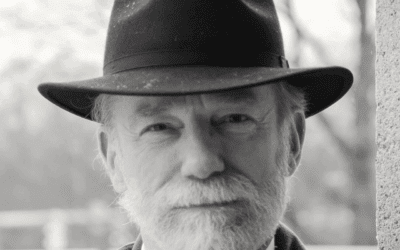Who was Kant?

Immanuel Kant (1724-1804), the renowned German philosopher, left an indelible mark on the development of psychology and psychotherapy. His groundbreaking ideas about the nature of the mind, morality, and the structure of human experience continue to shape our understanding of mental health and inform therapeutic approaches to this day. In this essay, we will delve into Kant’s key philosophical contributions, explore their influence on the work of Carl Jung and other psychological pioneers, and consider their ongoing relevance in contemporary psychotherapy.
Kant’s Copernican Revolution in Philosophy
Kant’s most significant contribution to Western thought was his “Copernican Revolution” in philosophy, which placed the human mind at the center of the knowable universe. In his seminal work, “Critique of Pure Reason” (1781), Kant argued that our understanding of the world is fundamentally shaped by the inherent structures of our minds, such as space, time, and causality. This revolutionary insight laid the foundation for the study of human subjectivity and paved the way for the emergence of psychology as a distinct discipline.
Kant’s Moral Philosophy and the Concept of Duty
In addition to his epistemological innovations, Kant made substantial contributions to moral philosophy. His deontological ethics, based on the categorical imperative, emphasized the importance of acting from a sense of duty rather than merely pursuing pleasure or avoiding pain. Kant believed that moral actions should be guided by universalizable principles, such as treating others as ends in themselves rather than merely as means.
This emphasis on the role of conscience and the internal moral compass would later find resonance in the work of psychodynamic theorists, who sought to understand the interplay between the conscious and unconscious mind in shaping human behavior and mental health.
The Influence of Kant on Carl Jung’s Analytical Psychology
Carl Jung, one of the most influential figures in the history of psychology, was deeply influenced by Kantian philosophy. Jung’s conception of the psyche as a self-regulating system, with conscious and unconscious elements, drew heavily on Kant’s ideas about the structure of the mind.
The Archetypes and the Collective Unconscious
Jung’s theory of archetypes, which posits the existence of universal patterns and symbols in the collective unconscious, can be seen as an extension of Kant’s notion of a priori categories that shape human experience. Just as Kant argued that space, time, and causality are inherent structures of the mind, Jung believed that archetypes are innate psychological predispositions that guide our perceptions, thoughts, and behaviors.
The Transcendent Function and Individuation Jung’s concept of the transcendent function, which refers to the psyche’s ability to integrate opposing elements (such as the conscious and unconscious) into a unified whole, also bears the imprint of Kantian thought. This process of integration, known as individuation, is seen as the ultimate goal of psychological development in Jungian theory.
Kant’s idea of the “thing-in-itself,” or the ultimate reality that lies beyond our perceptual and conceptual limitations, finds parallels in Jung’s notion of the Self, the central archetype that represents the totality and unity of the psyche.
The Relevance of Kantian Ideas in Contemporary Psychotherapy
The influence of Kant’s philosophy extends beyond analytical psychology and can be seen in various contemporary psychotherapy modalities. Cognitive-Behavioral Therapy (CBT), for example, with its emphasis on the role of thoughts and beliefs in shaping emotions and behaviors, owes a debt to Kant’s insights into the structuring power of the mind.
Existential and humanistic therapies, which stress the importance of personal responsibility, authenticity, and meaning-making, also resonate with Kantian themes. The idea that individuals possess an innate capacity for growth and self-actualization, central to these approaches, can be traced back to Kant’s conception of human dignity and the autonomous moral agent.
The Ethical Implications of Kant’s Philosophy for Psychotherapy
Kant’s moral philosophy, with its emphasis on respect for persons and the inviolability of human dignity, has significant implications for the ethical practice of psychotherapy. The Kantian imperative to treat others as ends in themselves, never merely as means, underscores the importance of informed consent, confidentiality, and the avoidance of exploitation in the therapeutic relationship.
Moreover, Kant’s notion of the categorical imperative, which demands that we act only according to principles that could be universalized, provides a basis for the development of professional codes of ethics in psychology and counseling. The duty to prioritize the well-being of clients, to maintain appropriate boundaries, and to engage in ongoing self-reflection and professional development can all be seen as grounded in Kantian ethical principles.
The Continuing Relevance of Kant’s Ideas
As we navigate the complexities of mental health in the 21st century, the enduring insights of Immanuel Kant continue to light the way. His emphasis on the structuring power of the mind, the primacy of moral duty, and the inherent dignity of the human person remain as relevant as ever in our efforts to understand and alleviate psychological suffering.
By engaging with Kant’s philosophical legacy, contemporary psychotherapists can deepen their understanding of the foundations of their discipline and enrich their practice with a renewed appreciation for the ethical and existential dimensions of their work. In doing so, they can contribute to the ongoing project of realizing Kant’s vision of enlightenment, in which individuals are empowered to think for themselves and to live in accordance with their highest moral principles.
The Challenges and Opportunities of Applying Kantian Ideas in Psychotherapy
While Kant’s philosophy offers a rich resource for psychotherapists, it is not without its challenges. The abstract and sometimes abstruse nature of his writing can make it difficult to translate his ideas into concrete therapeutic interventions. Moreover, the Kantian emphasis on reason and duty may sometimes seem at odds with the emotional and relational dimensions of psychotherapy.
However, these challenges also present opportunities for creative synthesis and innovation. By bringing Kant’s ideas into dialogue with other philosophical and psychological traditions, therapists can develop new approaches that integrate the best of both worlds. For example, a Kantian-inspired cognitive therapy might focus on helping clients to identify and critique the implicit assumptions and categories that structure their experience, while also attending to the affective and interpersonal dynamics that shape their mental health.
Kant’s Legacy in the Age of Neuroscience
In an era increasingly dominated by neuroscientific explanations of human behavior, Kant’s emphasis on the irreducible reality of subjective experience remains a vital counterpoint. While the insights of brain science are undoubtedly valuable, they cannot fully capture the richness and complexity of the human mind as understood by Kant and his philosophical heirs.
As psychotherapists, we must strive to integrate the findings of neuroscience with the enduring wisdom of philosophical and psychological traditions that recognize the central role of meaning, morality, and subjectivity in shaping mental health. By doing so, we can develop a more comprehensive and humane approach to the challenges of the human condition.
Kant’s Continuing Relevance
Kant’s Enduring Relevance for Psychology and Psychotherapy Immanuel Kant’s philosophical revolution continues to reverberate through the fields of psychology and psychotherapy, more than two centuries after his death. His insights into the nature of the mind, the structure of human experience, and the foundations of morality have profoundly shaped our understanding of mental health and informed the development of diverse therapeutic approaches.
From Carl Jung’s analytical psychology to contemporary cognitive-behavioral and existential therapies, Kant’s ideas have left an indelible mark on the theory and practice of psychotherapy. As we continue to grapple with the complexities of the human psyche in the 21st century, Kant’s philosophy remains an invaluable resource, offering guidance, inspiration, and a powerful reminder of the enduring dignity and potential of the human spirit.
By engaging critically and creatively with Kant’s legacy, psychotherapists can deepen their understanding of the philosophical foundations of their work and develop new approaches that integrate the best of both historical and contemporary thought. In doing so, they can contribute to the ongoing project of alleviating suffering, promoting well-being, and realizing the highest aspirations of the human mind and heart.
In a world that often seems fractured and uncertain, Kant’s vision of a universal moral community, founded on the principles of reason, autonomy, and mutual respect, offers a glimmer of hope and a guiding light for all those who seek to heal the wounds of the soul. As psychotherapists, we have a unique opportunity and responsibility to carry this vision forward, in service of our clients and of the greater good.
References:
- Allison, H. E. (2004). Kant’s transcendental idealism: An interpretation and defense. Yale University Press.
- Ameriks, K. (2000). Kant and the fate of autonomy: Problems in the appropriation of the critical philosophy. Cambridge University Press.
- Caygill, H. (1995). A Kant dictionary. Blackwell Reference.
- Guyer, P. (Ed.). (1992). The Cambridge companion to Kant. Cambridge University Press.
- Jung, C. G. (1971). Psychological types. In H. Read et al. (Eds.), The collected works of C. G. Jung (Vol. 6). Princeton University Press.
- Kant, I. (1998). Critique of pure reason (P. Guyer & A. W. Wood, Trans.). Cambridge University Press.
- Kant, I. (2002). Groundwork for the metaphysics of morals (A. W. Wood, Trans.). Yale University Press.
- Korsgaard, C. M. (1996). Creating the kingdom of ends. Cambridge University Press.
- Lehrer, K. (2017). Philosophical temperaments: From Plato to Foucault. Routledge.
- Makkreel, R. A. (1990). Imagination and interpretation in Kant: The hermeneutical import of the Critique of Judgment. University of Chicago Press.
- O’Neill, O. (1989). Constructions of reason: Explorations of Kant’s practical philosophy. Cambridge University Press.
- Palmquist, S. R. (1993). Kant’s system of perspectives: An architectonic interpretation of the critical philosophy. University Press of America.
- Paton, H. J. (1947). The categorical imperative: A study in Kant’s moral philosophy. Hutchinson’s University Library.
- Wood, A. W. (2005). Kant. Blackwell Publishing.
Read More Depth Psychology Articles:
Taproot Therapy Collective Podcast
Influences on Jung
Philosophy


























0 Comments